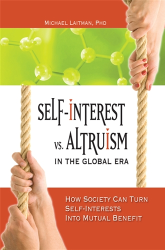
The Pyramid of Desires
The top of the pyramid is also the part that governs it,
and hence the part that has free choice in how to do it,
and the responsibility to do it right.
Mesopotamia, the Cradle of Civilization, was also the birthplace of Abraham, the harbinger of Kabbalah. The conflict between Abraham and Nimrod, ruler of Babylon, stands for much more than a conflict between a ruler and a defiant subject. It is a conflict of perceptions. To Nimrod, reality is a “federation” of forces that he must please, serve, and appease by sacrifice. To Abraham, there is only one force, and worshiping it means living by its law—the law of giving, as simple and as straightforward as that. Considering this contrast of views, it is no wonder that Nimrod had to either destroy Abraham or expel him.
But Abraham’s departure from Babylon did not quiet the polis. The trends that had prompted Abraham’s search for life’s secret continued to intensify and to spread through the bustling city, fueled by the same forces that power the process of evolution. Yet, in Babylon, these trends began to manifest a conduct that is uniquely human—egoism.
Baal HaSulam explains that egoism is a natural trait for humans. He declares that it is human nature, and that Kabbalah offers a way to turn its evident detrimental consequences into positive ones. In “Peace in the World,” he writes, “In simple words we shall say, that the nature of each and every person is to exploit the lives of all other people in the world for his own benefit. And all that he gives to another is only out of necessity; and even then there is exploitation of others in it, but it is done cunningly, so that his neighbor will not notice it and concede willingly.”
The Need to Learn How to Govern & Nurture the Pyramid of Desires
But before we delve into the solution that Kabbalah offers to human egoism, we need to understand how the desire to receive, initially created by the desire to give—the Creator—has become egoism. “The reason for it,” continues Ashlag, “is that … man’s soul [desire] extends from the Creator, who is one and unique. … Hence, man, too … feels that all the people in the world should be under his governance,” just as the whole of nature is governed by the law of bestowal, the Creator.
Moreover, unlike all other elements in Nature, which are forced to behave in congruence with their environment, human beings have the power to change the environment. This gives us something that no other creature has: free choice. Put differently, human beings can choose to be like the Creator—giving—and acquire the power and cognizance that come with it, or remain as we were born—self-centered and limited.
When the stages of desires cascaded from the desire to give, the desire to receive evolved with each new stage. In the physical world, too, the evolving desires manifest in the different stages of evolution (see “Pyramid of Desires” image at the top of the article): At the bottom of the pyramid are the minerals and the inanimate materials. This is the Still Level, corresponding to Stage One. Above that is the flora—corresponding to Stage Two, topped by fauna—Stage Three, and above all is man (speaking)—Stage Four.
Considering that all that exists are the desire to give and its offshoot, the desire to receive, it is evident that the speaking level (us), possessing the most intense, sophisticated and complex desire to receive, is not just an inseparable part of creation, but is its apex and governor. And just as the brain governs the entire body, yet is also completely dependent on it for its survival, we must learn how to govern and nurture the whole of the pyramid of creation if we are to survive.
Here Is a Model that Can Help You Overcome Any Problem & Reach Harmony
The reason why Abraham was the only one of his generation to discover life’s creative force is that he was a piece of Adam’s Partzuf that was ready to reveal it. But the goal of creation is not for only one person to achieve the Creator-like state, but for all of humanity to achieve it. Therefore, Abraham’s discovery was not a one-time-thing, but an antecedent to a new stage in the spiritual evolution of humanity.
Abraham realized that life is a pyramid whose peak is the Creator’s trait of bestowal. He also realized that human desires would only intensify, as they have done since the dawn of creation. And finally, Abraham knew that this awareness, along with having the correction method provided by Kabbalah, were the only ways to avert the collapse of the system due to the heightening egoism. But in the absence of tangible proof, only a handful followed Abraham and united around the goal of attaining the Creator. When those who went with him grew and became a nation, they were named after their goal: Ysrael (Israel), from the Hebrew words Yashar El (Straight to God).
Historically, Babel did not collapse immediately or even soon after Abraham’s departure. It continued to fluctuate in dominance and prominence for more than a millennium following his leave, including the resettlement of Hebrews in Babel after their exile following the ruin of the first Temple. However, from the spiritual, Kabbalistic perspective, Nimrod’s triumph in Babel sealed its doom because it perpetuated the rule of egoism rather than altruism.
 “What Is Today’s Significance of the Story of Abraham’s Conflict with Nimrod?” is based on the book, Self Interest vs. Altruism in the Global Era: How Society Can Turn Self Interests into Mutual Benefit by Dr. Michael Laitman.
“What Is Today’s Significance of the Story of Abraham’s Conflict with Nimrod?” is based on the book, Self Interest vs. Altruism in the Global Era: How Society Can Turn Self Interests into Mutual Benefit by Dr. Michael Laitman.
